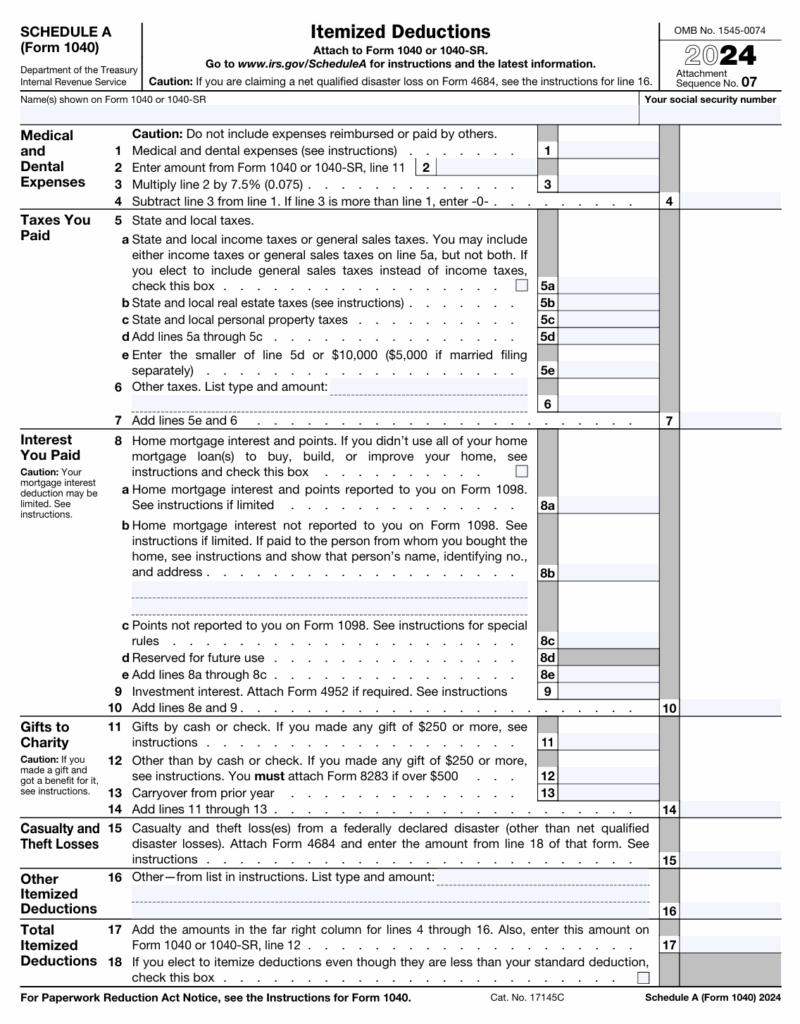The FEIE Standard Deduction: What it is for digital nomads
Wiki Article
Comprehending the Foreign Earned Earnings Exclusion and Its Influence On Your Basic Reduction
The Foreign Earned Earnings Exemption (FEIE) provides significant advantages for migrants, permitting them to exclude a portion of their foreign-earned income from united state tax. Claiming the FEIE can make complex one's tax circumstance, especially pertaining to the typical reduction. Understanding this interaction is necessary for people living abroad. As expatriates navigate these complexities, they need to take into consideration how their options influence their overall tax responsibility. What approaches can they use to maximize their economic end results?What Is the Foreign Earned Earnings Exclusion (FEIE)?
The Foreign Earned Earnings Exclusion (FEIE) acts as a crucial tax obligation benefit for united state citizens and resident aliens working abroad. This arrangement allows eligible people to omit a substantial portion of their foreign-earned income from united state taxation, successfully reducing their general tax obligation worry. The FEIE intends to reduce the economic pressure on expatriates and encourages Americans to seek employment possibility in foreign markets. The exclusion relates to earnings, incomes, and professional fees gained while living in an international nation. The maximum exclusion quantity is readjusted annually for inflation, guaranteeing that it remains relevant to present economic conditions. By using the FEIE, expatriates can preserve more of their earnings, cultivating monetary stability while living overseas. On the whole, the FEIE plays a vital function fit the monetary landscape for Americans abroad, helping with a smoother change to worldwide workplace and promoting financial engagement on an international range.Eligibility Requirements for the FEIE
Qualification for the Foreign Earned Earnings Exclusion (FEIE) is contingent upon meeting particular requirements set by the Internal Revenue Service (INTERNAL REVENUE SERVICE) Largely, individuals should be U.S. people or resident aliens that earn revenue while living in an international country. To qualify, they have to satisfy one of 2 primary examinations: the Physical Presence Examination or the Bona Fide House Test.The Physical Presence Examination needs individuals to be literally existing in a foreign country for at the very least 330 complete days within a 12-month period - FEIE Standard Deduction. On the other hand, the Bona Fide Residence Test demands that individuals establish residency in a foreign country for a continuous period that consists of an entire tax year
In addition, the earnings has to be originated from personal services carried out in the foreign nation. Fulfilling these requirements allows taxpayers to omit a substantial section of their foreign-earned income from united state tax, therefore decreasing their overall tax obligation.
Exactly how to Assert the FEIE

To start the procedure, people should gather documents that confirm their international incomes, such as pay stubs, income tax return from international nations, and any pertinent employment contracts. It is very important to guarantee all revenue declared under the FEIE is earned from international sources and satisfies the called for limits.
Furthermore, taxpayers should consider filing target dates and any kind of feasible extensions. Claiming the FEIE properly not just assists in minimizing tax obligation obligation yet also assures conformity with IRS regulations. Proper documents and adherence to standards are important for an effective case of the Foreign Earned Revenue Exemption.
The Communication In Between FEIE and Basic Reduction
The interaction between the Foreign Earned Earnings Exclusion (FEIE) and the common reduction is an essential facet of tax obligation planning for expatriates. Understanding the fundamental concepts of FEIE, along with the restrictions of the common reduction, can greatly influence tax obligation declaring techniques. This area will discover these aspects and their implications for taxpayers living abroad.FEIE Basics Described
While lots of migrants seek to reduce their tax worry, understanding the interaction between the Foreign Earned Revenue Exclusion (FEIE) and the basic reduction is necessary. The FEIE enables U.S. people and resident aliens living abroad to leave out a certain quantity of foreign earned revenue from U.S. tax. This exclusion can considerably lower gross income, possibly affecting eligibility for various other deductions, such as the common deduction. Extremely, people that assert the FEIE can not also take the common deduction against the left out income. Consequently, expatriates need to meticulously assess their complete income and reductions to enhance their tax situation. Understanding of these communications can result in even more educated financial decisions and far better tax obligation approaches for migrants guiding via their one-of-a-kind scenarios.Standard Reduction Limitations
Understanding the constraints of the basic deduction in connection with the Foreign Earned Earnings Exemption (FEIE) is necessary for expatriates steering important link their tax obligations. While the FEIE permits certifying people to exclude a certain quantity of foreign-earned revenue from U.S. taxation, it can affect the typical reduction they are eligible to case. Specifically, taxpayers who claim the FEIE can not likewise claim the typical deduction on that particular left out earnings. Furthermore, if a migrant's total earnings falls listed below the basic reduction limit, they might not gain from it in all. This interaction necessitates mindful preparation to optimize tax obligation benefits, as underutilizing the typical reduction can result in greater gross income and increased tax obligation obligation. Recognizing these restrictions is vital for efficient tax method.Tax Declaring Ramifications
Maneuvering the tax declaring implications of the Foreign Earned Revenue Exemption (FEIE) calls for careful factor to consider of how it engages with the basic reduction. Taxpayers using the FEIE can exclude a significant portion of their foreign-earned income, yet this exclusion influences their eligibility for the standard deduction. Specifically, if a private claims the FEIE, they can not additionally declare the standard reduction for that earnings. This can result in a lower total tax obligation liability however may complicate the filing procedure. In addition, taxpayers need to assure compliance with IRS demands when submitting Kind 2555 for the FEIE. Recognizing these communications is vital for maximizing tax obligation benefits while staying clear of prospective mistakes in the declaring process. Careful planning can make best use of advantages and lessen obligations.Possible Tax Implications of Using the FEIE
The Foreign Earned Revenue Exemption (FEIE) provides significant tax advantages for united state people working abroad, however it likewise comes with prospective effects that require mindful consideration. One major repercussion is the effect on eligibility for sure tax credit histories and deductions. By choosing to utilize the FEIE, taxpayers may unintentionally decrease their modified gross earnings, which can restrict accessibility to credit reports like the Earned Earnings Tax obligation Debt or lower the quantity of typical deduction readily available.
In addition, people that use the FEIE may deal with problems when going back to the U.S. tax system, specifically worrying the taxation of future earnings. The exemption applies just to earned revenue, suggesting other income kinds, such as dividends or interest, stay taxable. This distinction necessitates precise record-keeping to ensure compliance. Lastly, the FEIE may affect state tax obligation responsibilities, as some states do not recognize the exemption and might strain all income earned by their citizens, regardless of where it is gained.
Tips for Maximizing Your Tax Obligation Benefits While Abroad
While functioning abroad can be enhancing, it likewise presents special chances to maximize tax obligation benefits. To maximize these advantages, individuals ought to first identify their qualification for the Foreign Earned Revenue Exclusion (FEIE) and consider the physical presence test or the authentic home test. Keeping comprehensive records of all income gained and costs incurred while overseas is crucial. This paperwork sustains cases for deductions and credit histories.Additionally, comprehending the tax treaties between the USA and the host nation can help avoid dual taxes. People must also check out contributions to tax-advantaged accounts, such as Individual retirement accounts, which might give more reductions.

Lastly, consulting a tax obligation specialist concentrating on expatriate tax law can provide tailored methods and guarantee conformity with both united state and foreign tax obligation obligations. By taking these steps, migrants can properly improve their monetary scenario while living abroad.
Frequently Asked Inquiries
Can I Make Use Of FEIE if I Help a Foreign Federal government?
Yes, a person can utilize the Foreign Earned Income Exclusion (FEIE) while helping an international government, offered they satisfy the requisite conditions outlined by the IRS, consisting of the physical existence or authentic residence examinations.
Does FEIE Apply to Self-Employment Income?
The Foreign Earned Revenue Exemption (FEIE) does Your Domain Name apply to self-employment earnings, offered the specific satisfies the essential demands. Eligible independent people can leave out certifying earnings gained while this post residing in a foreign nation from tax.Suppose My International Revenue Exceeds the FEIE Limit?
The excess amount might be subject to U.S. tax if foreign revenue goes beyond the FEIE limit. Taxpayers must report and pay taxes on the income over the exclusion threshold while still taking advantage of the exclusion.Can I Assert the FEIE and Detail Reductions?
Yes, people can claim the Foreign Earned Income Exclusion (FEIE) while likewise itemizing deductions. They must be conscious that asserting the FEIE might influence the accessibility of specific itemized deductions on their tax return.
Just How Does FEIE Affect My State Tax Responsibilities?
The Foreign Earned Income Exemption can lower state tax obligation commitments, as several states comply with government guidelines. Nevertheless, individual state regulations differ, so it's important to speak with state tax obligation laws for specific ramifications on tax obligation responsibilities.The Foreign Earned Income Exemption (FEIE) offers substantial benefits for expatriates, allowing them to leave out a part of their foreign-earned earnings from United state taxation. While many migrants seek to lower their tax obligation concern, recognizing the interaction between the Foreign Earned Revenue Exemption (FEIE) and the typical deduction is necessary. Recognizing the constraints of the basic deduction in connection to the Foreign Earned Income Exemption (FEIE) is essential for expatriates steering their tax obligation duties. The exemption uses only to earned revenue, meaning various other earnings kinds, such as dividends or rate of interest, continue to be taxable. The Foreign Earned Income Exclusion (FEIE) does apply to self-employment earnings, gave the private fulfills the needed requirements.
Report this wiki page